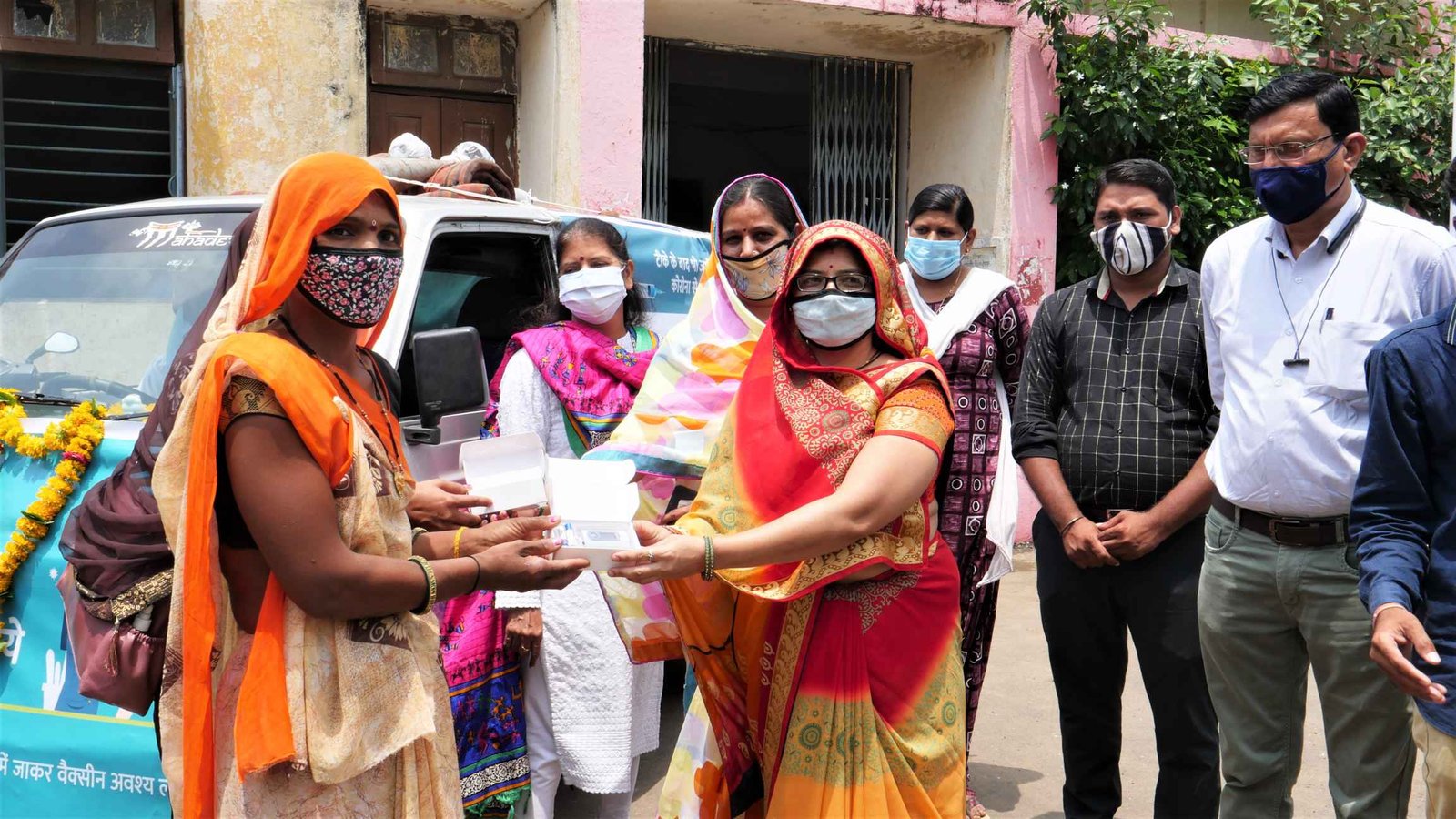Ensuring Institutional Delivery During a Public Health Crisis
Sonal Bai (name changed), a resident of Guradiya village in the Bagli block of Dewas district in Madhya Pradesh was pregnant with her third child when the lockdown happened due to COVID 19. During her seventh month of pregnancy, she weighed 38 kg and her haemoglobin level was at 8 kg which is far from the normal range of 12-15g. At such an alarming level of undernutrition, both she and her baby were at an increased threat with each passing day.
Despite being aware of the risks involved, Sonal Bai refused to visit the Public Health Centre (PHC) in Bagli for her regular check-ups. The ASHA from the Bagli PHC along with an SPS team member and an Anganwadi worker visited her to understand her situation and to explain to her the importance of regular health check-ups during pregnancy. However, Sonal’s husband Shiv (name changed) was adamant to not take her to the hospital for medical tests and regular check-ups. He confided to the team that Sonal was an HIV-positive person and going to a public hospital during a pandemic would be pushing her into further precariousness. He also gave several instances of stigma and taboo that an HIV-positive person has to go through in their lifetime. In one of their early visits to the hospital, the administration had denied delivery to Sonal because she was HIV positive and would be at a higher risk owing to the pandemic.
A 25 years old Sonal and already a mother of two children was also afraid that she would contract COVID 19 during her stay at the hospital and would not be able to come back home safely. After repeated conversations with Sonal Bai and Shiv, they agreed to visit the District hospital in Dewas. This was just before the nationwide lockdown due to COVID 19 was announced. Sonal Bai and Shiv did not have the means to travel by private vehicle and despite all risks, decided to travel by bus to reach the District Hospital in Dewas. The ASHA along with an SPS team member arranged for an ambulance from the PHC in
Bagli would take them to Dewas and bring them back. Sonal was given a dosage of intravenous iron sucrose therapy in the Dewas Hospital which is an effective means to treat anaemia in pregnant women. This increased her haemoglobin level to 9g.
In the early second week of April 2020, Sonal Bai went into preterm labour. Shiv made a helpless phone call to one of the Health and Nutrition mitaans of SPS. The mitaan immediately informed the ASHA who arranged for a 108 ambulance from the Bagli PHC. Sonal Bai was rushed to the Dewas District Hospital without any delay where she gave birth to her third child. The timely intervention and coordinated help meted out by the ASHA and the SPS mitaan ensured an institutional delivery for Sonal Bai’s child.
At a time, when India faces one of its worst public health crises and a complete collapse of public health infrastructure, remote villages in the Central Indian tribal belt continue to battle a multiply disadvantaged fight riddled with the stigma around certain diseases, denial of basic healthcare facilities alongside fighting the impacts of a pandemic on their regular lives and livelihood. This underlines the need for urgent public investments in our health infrastructure in the rural areas, something that independent India has neglected for over seven decades. It also highlights the need to sensitise people against all forms of social stigma and taboos associated with diseases.



